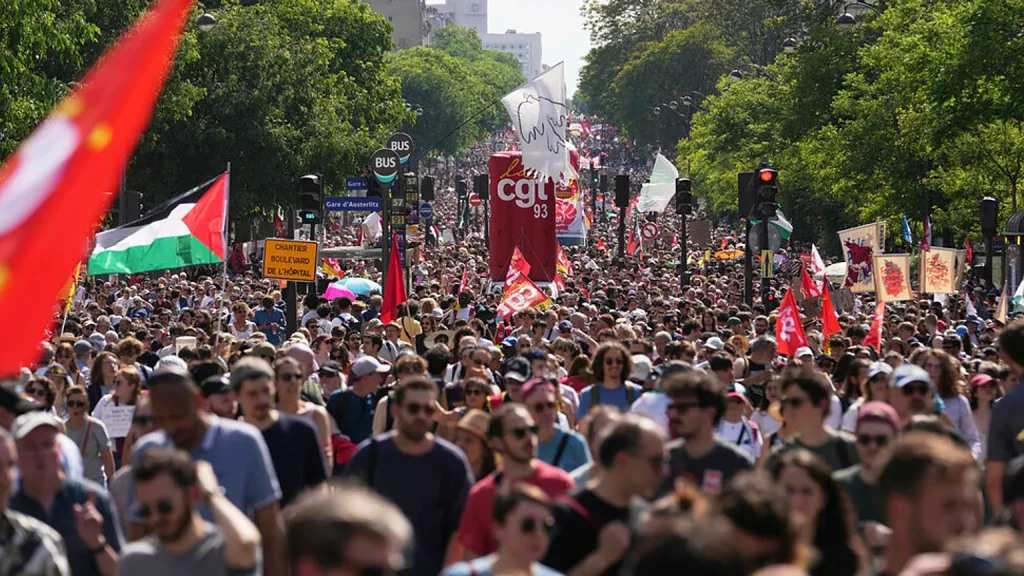Mass Protests Erupt Across France Over Austerity Plans

On Thursday, large crowds took to the streets throughout France to protest against looming austerity policies. The demonstrations, organised by labor unions, were aimed at pushing President Emmanuel Macron and newly appointed Prime Minister Sebastien Lecornu to abandon plans for public spending cuts.
Those walking off the job included teachers, train operators, healthcare workers, and pharmacists. Meanwhile, students joined in by blocking access to numerous high schools. Demonstrators are demanding that previous economic policies be overturned, increased investment in public services, higher taxation on the wealthy, and the repeal of a controversial pension reform that forces people to work longer before retiring.
“Block your high school against austerity,” read a placard raised by a student in front of the Lycee Maurice Ravel high school, where the gathering included teachers and workers’ representatives.
Union leaders stressed the scale and intensity of public discontent.
“The anger is huge, and so is the determination. My message to Mr. Lecornu today is this: it’s the streets that must decide the budget,”
said Sophie Binet, the head of the CGT union, as the prime minister works to draft the upcoming budget and assemble his government.
According to Binet, some 400,000 people had already participated in protests across the country by the morning, with more expected, including a major demonstration in Paris.
Macron and Lecornu now face mounting pressure: on one hand, from citizens and leftist parties who oppose cuts to public spending, and on the other, from financial markets concerned about the country’s growing deficit. With the National Assembly split and no political faction holding a majority, passing any new budget will be a serious challenge.
“This is a warning, a clear warning to Sebastien Lecornu,” said Marylise Leon, the head of the CFDT union. “We want a socially fair budget.”
Authorities had anticipated that up to 800,000 people would participate in the day’s actions. In the education sector, around one-third of primary school teachers took part in the strike nationwide, with nearly half doing so in Paris, according to figures from the FSU-SNUipp union.
Train service was disrupted, especially on regional lines, though most high-speed TGV routes continued to operate. Protesters also blocked roads, including one highway near the southeastern city of Toulon.
In some areas, the demonstrations turned tense. In Nantes, police used tear gas to control crowds, while in Lyon, several injuries were reported, according to French media.
“Workers are currently so despised by this government and by (President Emmanuel) Macron that, in fact, it can’t continue like this,” said Fred, a bus driver and union representative, speaking at a high school blockade in Paris.
France’s budget deficit last year was nearly twice the EU limit of 3%, creating added urgency for the government to stabilize public finances. Still, with a fragmented parliament, Lecornu will likely struggle to secure enough support for a 2026 budget that satisfies both fiscal conservatives and those calling for greater social spending.
